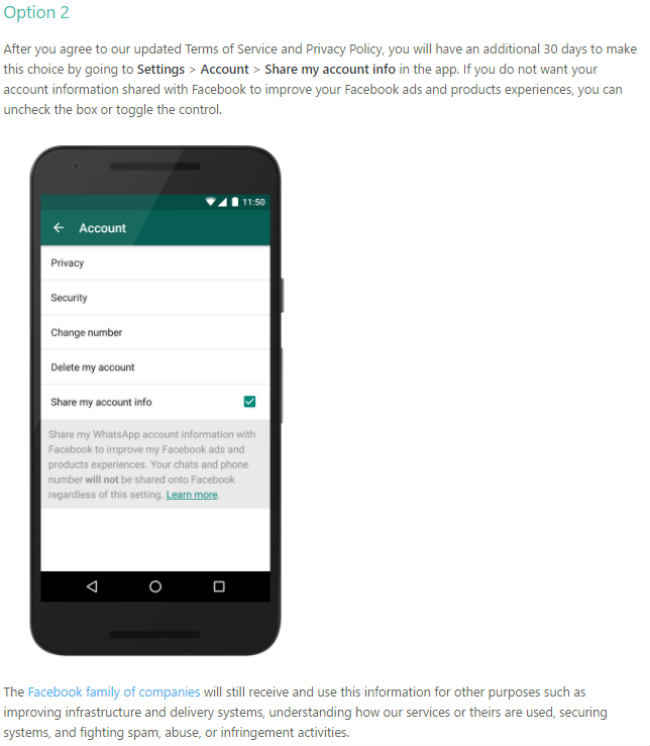Users can withdraw from Facebook, WhatsApp if they find policy unacceptable: Facebook counsel to SC

Further, the government is also looking to introduce a regulatory regime for internet based messaging and voice call platforms
In a Supreme Court case regarding WhatsApp's revised privacy policy, Facebook’s counsel reportedly told the court that users were free to quit the platform if they felt WhatsApp’s policies violated their fundamental rights. While WhatsApp’s counsel, Kapil Sibal told the court that the encryption policy used by Facebook ensured privacy, the contract between the user and WhatsApp was in the private domain, hence it cannot be tested constitutionally by the Supreme Court. Facebook’s counsel, K K Venugopal was more straightforward and said “those who find the new privacy policy irksome or violative of their fundamental rights, can quit. We've given full freedom to users to withdraw from Facebook and WhatsApp.” To recall, the case is the result of a petition filed by two students.
However, the constitutional bench, consisting of Justices Dipak Misra, A K Sikri, Amitava Roy, A M Khanwilkar and M M Shantanagoudar, replied stating that this would be akin to forcing users to make a negative choice. Harish Salve, who is appearing for the petitioners, said that users unwillingly gave consent to Facebook to read messages privately circulated between users of WhatsApp.
We reached out to WhatsApp and Facebook regarding the ongoing case and a spokesperson who said that the company cannot comment on a matter that is sub judice, but shared two pieces of information. The first piece of information was a quote from their blog which stated, “Your messages are encrypted by default, which means you're the only people who can read them. Even as we coordinate more with Facebook in the months ahead, your encrypted messages stay private and no one else can read them. Not WhatsApp, not Facebook, nor anyone else. We won’t post or share your WhatsApp number with others, including on Facebook, and we still won't sell, share, or give your phone number to advertisers.”
However, WhatsApps terms and conditons and privacy policy states that the company is working with Facebook to "improve our services and offerings, like fighting spam across apps, making product suggestions, and showing relevant offers and ads on Facebook."
The spokesperson also said that the company had given people a choice on how Facebook could use their data. “[Existing WhatsApp users] can choose not to share your account information with Facebook to improve your Facebook ads and products experiences.”
It should be noted that they only way to make the choice was by heading to Settings > Account > Share my account info. Further, the paget still mentions that "Facebook family of companies will still receive and use this information for other purposes” regardless of their choice.
During the court case, the Center also weighed in and said that the government was planning a regulatory regime for internet based messaging and voice call platforms. It also noted that it was committed to protecting the freedom and fundamental rights guaranteed under the Constitution.
We’ve reached out to WhatsApp and facebook for further comments and will bring you an update as soon as possible.
Digit NewsDesk
Digit News Desk writes news stories across a range of topics. Getting you news updates on the latest in the world of tech. View Full Profile





